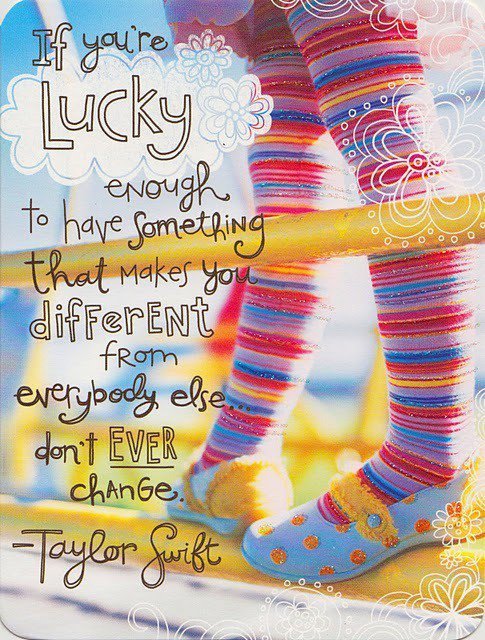
It was many years ago that villagers in Downstream recall spotting the first body in the river. Some old timers remember how Spartan were the facilities and procedures for managing that short of thing. Sometimes, they say, it would take hours to pull 10 people from the river, and even then only a few would survive.
Though the number of victims in the river has increased greatly in recent years, the good folks of Downstream have responded admirably to the challenge. Their rescue system is clearly second to none: most people discovered in the swirling waters are reached within twenty minutes, many in less than ten. Only a small number drown each day before help arrives -- a big improvement from the way it used to be.
Talk to the people of Downstream and they'll speak with pride about the new hospital by the edge of the waters, the flotilla of rescue boats ready for service at a moment's notice, the comprehensive health plans for coordinating all the manpower involved, and the large number of highly trained and dedicated swimmers always ready to risk their lives to save victims from the raging currents. Sure it costs a lot but, say the Downstreamers, what else can decent people do except to provide whatever is necessary when human lives are at stake.
Oh, a few people in Downstream have raised the question now and again, but most folks show little interest in what's happening Upstream. It seems there's so much to do to help those in the river that nobody's got time to check how all those bodies are getting there in the first place. That's the way things are, sometimes.
A few days ago, the American Academy of Pediatrics presented its report about children and ADHD or Attention Deficit Hyperactivity Disorder. The report was comprehensive in its discussions about what ADHD might look like, the course of the illness, and how it should be treated. And it included discussions about treatment of preschool-aged children with parent counseling approaches, behavior therapy, and in more extreme circumstances, medication. The authors note that long-term effects of medications on brain development are not known for sure.
ADHD is often described as a neuro-developmental disorder that starts in childhood and is characterized by chronic inattention, impulsiveness, and hyperactivity. Children (and teens and adults) diagnosed with ADHD often have co-occurring disorders, including learning problems, anxiety, depression, and others. The diagnosis has morphed over the last few decades, and the number of children falling under its umbrella has increased. The report issued last week by AAP also noted the expanded age range for ADHD, listed as formerly 6-12 years of age, and now described as 4-18 years of age. Up to 8% of children, according to the report, have ADHD.
I do not doubt that many children and adolescents have genuine neuro-developmental problems that are revealed in the types of behaviors described above. I also know that the types of behaviors associated with ADHD are often seen with children with other problems, as noted by the Center for Disease Control.
I have so many questions and concerns. Neurological development, particularly prenatally and during childhood, is sensitive to many external factors, including drugs and other substances ingested by the mother while pregnant and, before and after birth, many toxins in the environment. Toxins in the environment include chemicals in the air, water, and soil, and chemicals in foods. Neurological development is also sensitive to social and family environment factors. For example, exposures to trauma or violence can result in significant change in brain functioning and/or behavior. And we don't yet know what the long-term effects of being "plugged-in" to long periods of screen time on computers and televisions at a very young age might have on brain development. Research in all of these areas is ongoing.
I also have questions about other issues related to behavior and development. How do chronic chaos and disorganization in a child's life affect her? How might standardized testing from a young age and, more important, educational environments that emphasize the importance of standardized test scores over developmentally appropriate educational practices affect a child? What benefits might there be in giving a child time to dream and imagine, in granting lots of lazy "swinging on the gate" time? There are some studies that indicate that inattentive children show improved attention following unstructured time outdoors in nature. What does that mean?
Some of my best and most vivid memories from my parenting years are of those times when I stepped back and just let Michael and Julie "be" - alone or with friends. One winter, after a scary ER visit, Julie turned our dining room into a pediatrician's office, complete with a doctor's kit, "patients," computers and files, a telephone, and note-pads. She played in there for hours, sometimes alone and sometimes with her brother or friends. I remember going down into our basement one October to find the den transformed by Michael and his neighborhood friends into a Haunted House, complete with spider webs and beheaded dolls hanging from the ceiling. There were long late nights in the summer with kids from 3-13 years of age running around among the yards playing King of the Mountain. There were also times when the kids watched a lot of TV and played video games, but these were balanced out by playing outdoors or by sitting and listening to stories. What do you recall from your years of parenting your children? From your own childhood?
Talking about this is more than nostalgia. I do recognize that many children do not have the good fortune that other kids have - the space, the safe neighborhood or home, the supervision, the willingness of parents to tolerate messes. I am very grateful for what we were able to give our children. But beyond nostalgia - developmental research is clear that play and imagination are very important experiences for all children. These experiences help children be ready and willing to learn in more structured environments, foster confidence and increase self-awareness, and teach valuable socialization skills. They help children learn to pay attention, take turns, and sit still when needed.
I would not want to deny any child or family effective treatment - behavioral, family, or medication - if it is truly needed, if the child's well-being in terms of learning, friendships, and family relationships is significantly impaired by challenging behaviors. At the same time, I want to urge all of us - psychologists, physicians, sociologists, clergy, parents, grandparents, teachers and other educators, nurses - everyone - to begin to look upstream for causes and for possible lapses in our collective judgment or practices that may have contributed to unhealthy environments and/or unrealistic expectations for our children.
These are complex issues - there are no easy answers. But, at the very least, asking questions and searching for answers is necessary. This is our responsibility - to our children and grandchildren seven generations out, and to our society.
P.S. As I was writing this, Julie sent me the picture below...







 RSS Feed
RSS Feed
